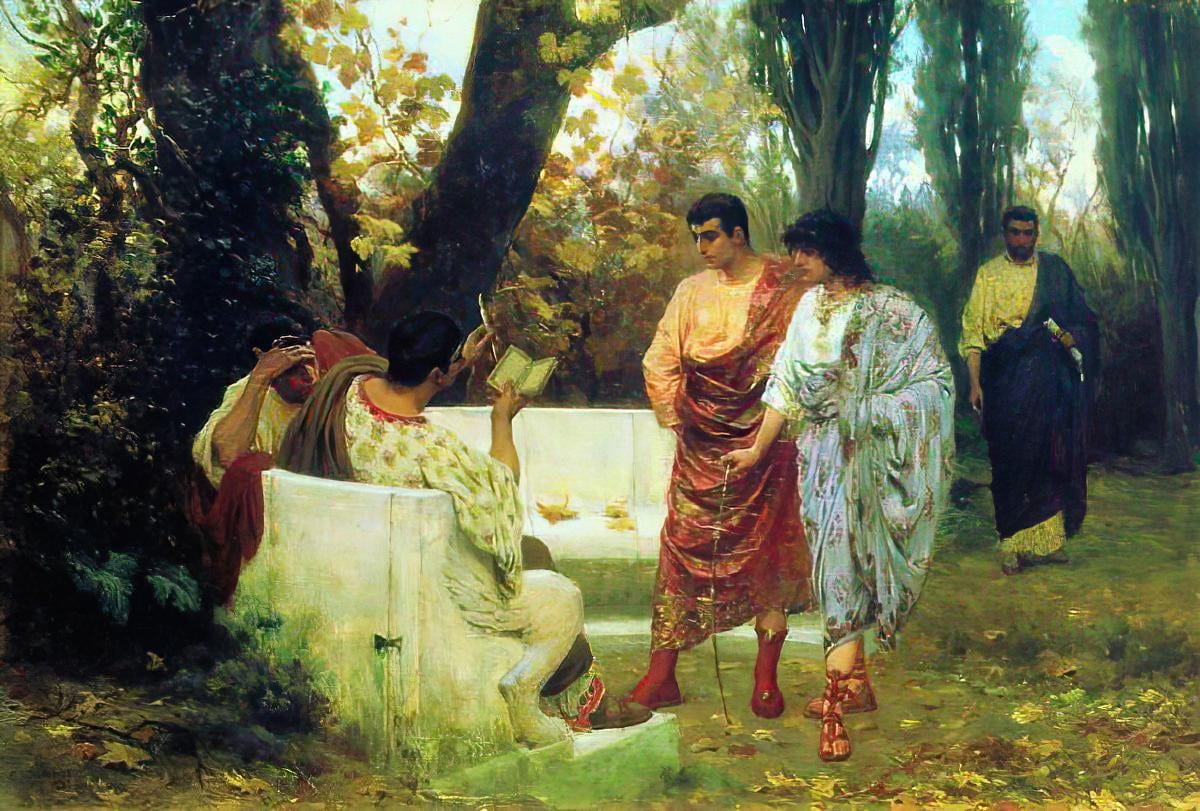Fables of Phaedrus, “The Dogs Sent Envoys to Jupiter”
By Dara Sánchez
Animal fables in ancient Rome were not viewed with high regard in comparison to other genres of literature. Yet Phaedrus, an alleged freeman of Augustus from the 1st century AD, does not allow these preconceived notions to deter his ambitions. In this feces-filled poem, Phaedrus describes to us an etiological myth that explains why dogs smell each other’s behinds. He mixes the sacred gods, Jupiter and Mercury, with the vulgarity of dogs and excrement, contrasting such different things, and playing on borderline absurdity…









